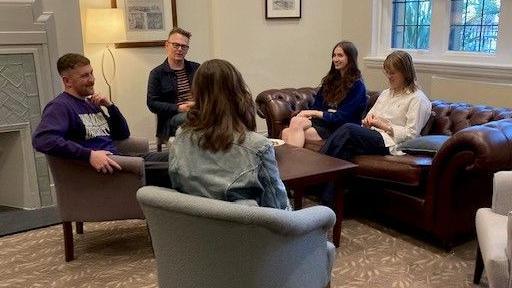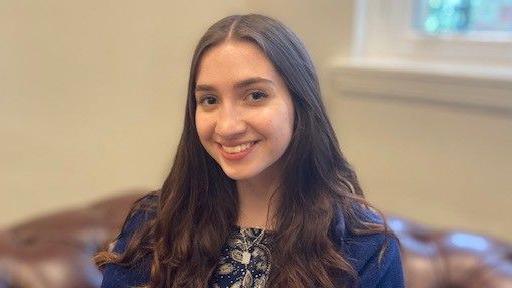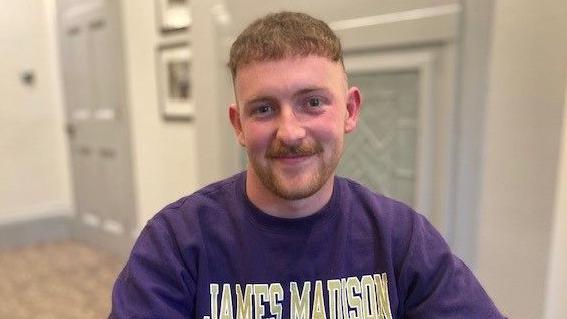Future 'less bright' for us, say young voters

Young people in Leeds said they felt politicians were out of touch with the issues important to them
- Published
Thousands of young people are eligible to vote for the first time in the upcoming general election - but it appears many will not.
At the election in 2019, just over 50% of those aged 18-24 cast a vote, and a leading academic in Leeds has said there could be a similar low turnout on 4 July.
Research fellow Dr Andy Mycock said there was little evidence that politicians were "engaging with issues which drive young people to the ballot box".
University of Leeds students told the BBC they felt politicians had "given up" on their generation, while their futures looked "less bright" than they had for their parents.
English literature student Emily Tabern, 23, said she was frustrated at the way politicians tried to engage with young people, with many promoting "silly TikToks" or trying to be "relatable" to young people rather than speaking to them directly about the issues.
She added: "I think there’s an assumption young people are apathetic towards politics probably because we’ve got so used to living in crisis and expecting the next bad thing."
Her friend, Lucy Bishop, 22, believed her generation was one of the first to enter a future "less bright than their parents", with Covid, the 2008 financial crash and the housing crisis creating "quite a depressing atmosphere to enter as a young person".

Emily Tabern said it felt like politicians had "given up" on her generation
Dr Mycock, who has been studying the voting behaviour of young people for almost two decades, said if they did not pick up the habit of voting at a young age, they were less likely to vote as adults, which he said was "bad for democracy".
His data suggested young people were still 15-20% less likely to vote than people in other age groups.
Dr Mycock said the policies geared towards young people - such as the suggestion of National Service or votes for 16-year-olds - "aren't really the type of issues that are speaking to young people's concerns".
Housing, the cost of education and future employment opportunities were higher on their agenda, he said.
"At the moment it's difficult to see in any of the main parties' speeches that there's any sense politicians are engaging with those issues which drive young people to the ballot box," Dr Mycock added.
According to the independent British Election Study, external, just over half of 18 to 24-year-olds took part in the 2019 general election.
In contrast, more than 80% of over-75s went to the polls.

Archie Lowry said the way politicians engaged with young people could feel patronising
Archie Lowery, who is 22 and studies history and politics, said he thought the way politicians engaged with young people could feel "patronising", and they designed policies for older generations because they believed they were more likely to vote.
He felt the catch-all term "young people" was in itself misleading as it assumed those aged between 18 and 24 cared about "broadly the same things, and have broadly the same interests and will respond to broadly the same messaging".
Meanwhile, Hannah Catterall, 22, who has dual nationality, said she would vote in this general election for the first time.
The philosophy student said she believed the future set out for young voters was "quite bleak", with crises in housing, mental health and the cost of living.
She said she would "like to have some hope that would change, but there’s a lack of incentive and a lack of hope among young people".
Voting in the general election takes place on Thursday 4 July.
Follow BBC Yorkshire on Facebook, external, X, external and Instagram, external. Send your story ideas to yorkslincs.news@bbc.co.uk, external.